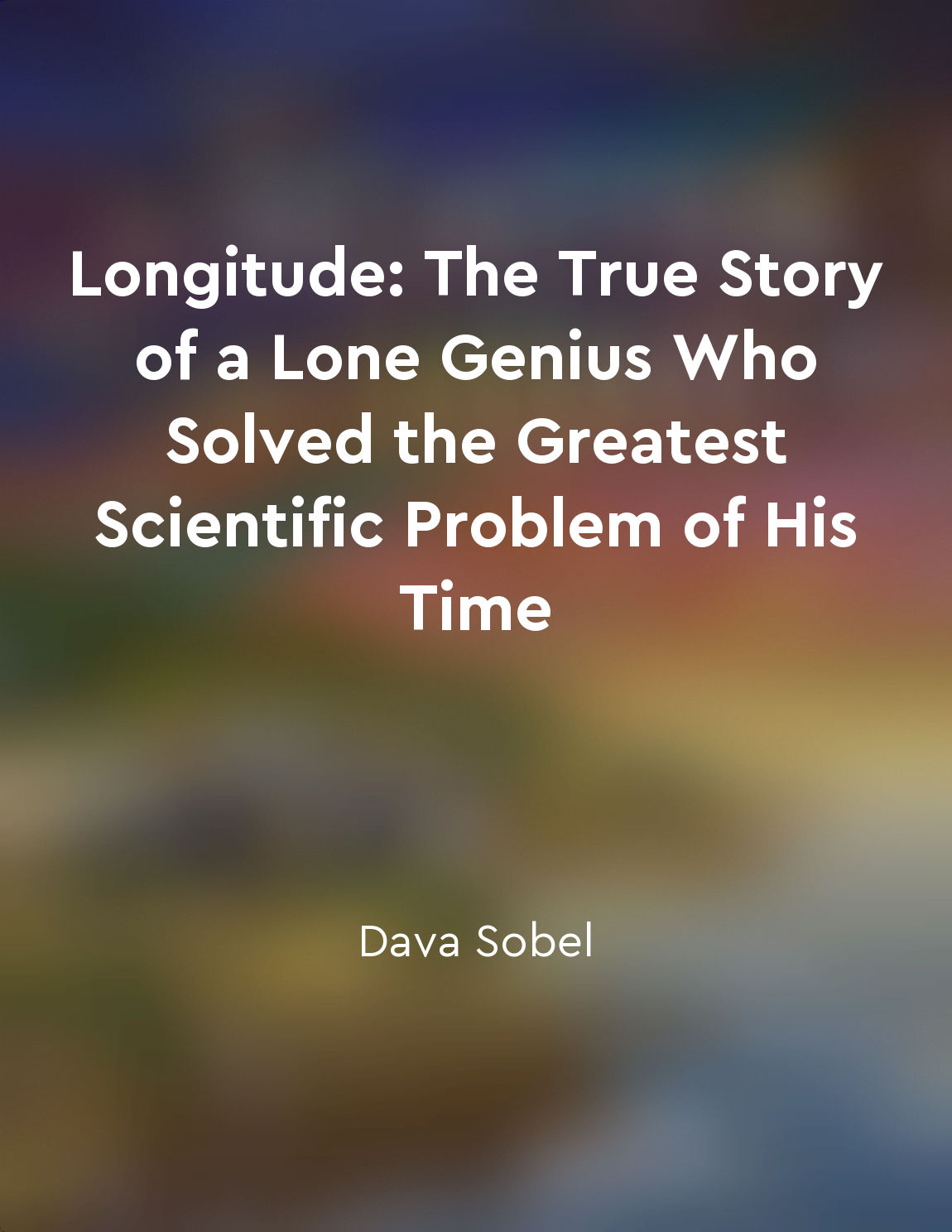Public acknowledgment from "summary" of Longitude: The True Story of a Lone Genius Who Solved the Greatest Scientific Problem of His Time by Dava Sobel
Public acknowledgment is a fundamental human need, a form of validation and recognition that can propel individuals to achieve great feats. In the case of John Harrison, the clockmaker who solved the elusive problem of determining longitude at sea, public acknowledgment was a driving force behind his relentless pursuit of a solution. Despite his groundbreaking invention of the marine chronometer, Harrison faced skepticism and resistance from the scientific establishment of his time. The Royal Society, the preeminent scientific organization of the 18th century, was initially dismissive of Harrison's invention, preferring to promote the mathematical methods advocated by their own members. Harrison's quest for recognition was further complicated by the entrenched interests and egos of established astronomers and mathematicians who viewed his invention as a threat to their expertise and authority. Nevertheless, Harrison persisted in his efforts to gain public acknowledgment for his revolutionary timepiece, the H4. Through years of meticulous craftsmanship and testing, he demonstrated the superior accuracy and reliability of his chronometer in determining longitude at sea. Despite facing numerous obstacles and setbacks, Harrison's unwavering dedication to his invention eventually won over the skeptics and critics who had doubted him. The pivotal moment in Harrison's quest for public acknowledgment came when the British Parliament offered a substantial reward for a practical solution to the longitude problem. This financial incentive motivated Harrison to submit his chronometer for rigorous testing and evaluation, ultimately leading to its official recognition as the most reliable method for determining longitude at sea. The awarding of the prize money and the subsequent praise and acclaim he received from his peers and the public at large marked a turning point in Harrison's long and arduous journey towards public acknowledgment.- John Harrison's story serves as a testament to the power of perseverance, ingenuity, and the human desire for recognition and validation. Despite facing considerable resistance and skepticism, Harrison's unyielding commitment to his invention ultimately earned him the public acknowledgment he so rightfully deserved. His legacy continues to inspire generations of inventors and innovators to pursue their dreams and aspirations, no matter the challenges they may face along the way.
Similar Posts
Navigating academic politics
Navigating academic politics can be a tricky and complex endeavor for young scientists. It involves understanding the power dyn...
The Gospel of Wealth guides my actions
The guiding principle that shapes my actions is the Gospel of Wealth. This philosophy is based on the idea that those who are f...
Harrison faced numerous challenges in perfecting his chronometers
Harrison's journey to perfect his chronometers was far from smooth sailing. He encountered a multitude of obstacles along the w...
The quest for longitude sparked a renaissance in science and technology
The challenge of finding longitude at sea was one that plagued sailors for centuries. Without an accurate way to determine thei...
He was a proponent of religious tolerance
Benjamin Franklin believed in the importance of religious tolerance. He valued the freedom for individuals to practice their ow...
Intertwining personal and professional lives
The pursuit of scientific discovery is not a solitary endeavor but rather a collaborative effort that often blurs the lines bet...
Discoveries have challenged existing beliefs and paradigms
Throughout history, discoveries have consistently disrupted the status quo by challenging established beliefs and paradigms. Th...


